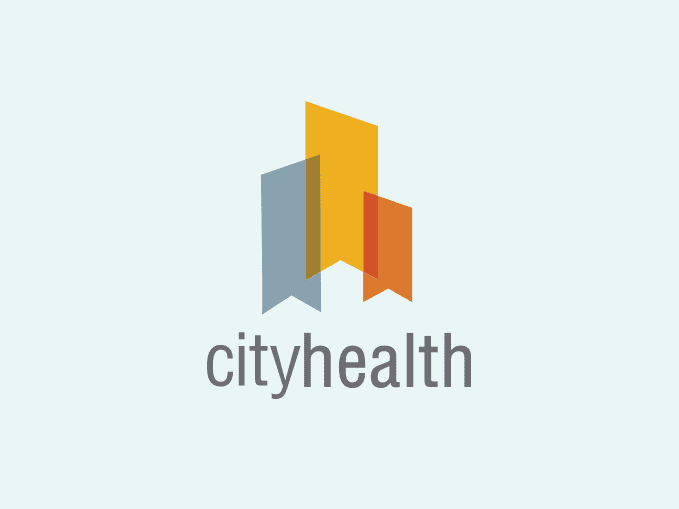WASHINGTON, D.C. – CityHealth, an initiative of the de Beaumont Foundation and Kaiser Permanente, released a new report today showing that cities across the country are adopting Complete Streets policies that allow residents to safely walk, bike, drive, and take public transit around their cities. These laws require cities to create transportation networks to ensure that all residents have safe, convenient ways of getting around and staying active. Street safety has taken on new relevance during the COVID-19 pandemic, as millions of Americans seek alternatives to public transit, and millions more look for opportunities to safely exercise outdoors. The National Complete Streets Coalition, a program of Smart Growth America, partners with CityHealth to advance these policies across the nation.
The new report includes findings from CityHealth’s latest assessment of the 40 largest cities in the nation, in which 29 cities received gold medals for their Complete Streets policies, and seven cities advanced their medal status from the year prior. Louisville, Milwaukee, Tucson, and Portland received no medal in the last report and were awarded gold this year. Charlotte and San Antonio moved from a silver medal to gold, and Seattle improved from bronze to gold. Seven cities received a silver medal. Four cities did not have strong enough policies in place to be awarded any medal. The full city-by-city results are included below. To read the full report, visit https://www.cityhealth.org/complete-streets.
“Complete Streets policies are proven to help keep residents safe as they travel around their city” said Shelley Hearne, DrPH, President of CityHealth. “These evidence-based policies improve public safety, fight obesity and have shown real economic benefits to cities across the country. Every city in the nation should adopt a strong Complete Streets policy to keep communities healthy and vibrant.”
“Streets are the largest share of public space in many communities and a strong Complete Streets policy is central to creating a place that is truly safe and accessible to everyone,” said Beth Osborne, Director of Transportation of America on behalf of the National Complete Streets Coalition. “Done right—as demonstrated by many of these communities—a Complete Streets policy goes beyond a statement of values to ensure that safer streets are actually built and that historically underserved communities see their fair share of investment.”
Across the nation, cities are rapidly adopting these policies with new urgency to protect those who do not travel by car, including walkers, bikers, and those who use micromobility options, like scooters. In the past decade, the number of pedestrians killed in the U.S. increased by 35 percent, and a sharp rise started to occur in 2009, according to the National Safety Council. More walking Americans were killed by car in 2016 and 2017 than any other year since 1990. While the total number of all other traffic deaths declined by six percent, pedestrian deaths represent a larger share of all traffic deaths, rising from 12 to 16 percent over the last decade.
See CityHealth’s Complete Streets Medals
Complete Streets policies require cities to integrate the needs and safety of residents who use all forms of transportation, including walking, biking, public transit, and cars. Streets are designed to serve people of all ages and abilities. Cities with strong Complete Streets policies consider street lighting, landscaping, sidewalk coverage, traffic calming measures, and connectivity of pedestrian walkways, bike lanes, and crosswalks when planning, building, and maintaining their transportation networks.
CityHealth’s assessment of Complete Streets policies first looks at whether a city has a Complete Streets policy in place. If so, the assessment then includes whether the policy requires compliance, accommodates pedestrians, cyclists, motorists, and public transit vehicles, as well as all ages and abilities, assigns a department to oversee implementation, and requires development of performance measures.
Pedestrians are not the only roadway users at increased risk on our nation’s streets. The popularity of micromobility, such as scooters, has exploded in cities. However, a new study in the Journal of the American Medical Association shows that street design has not kept up with this rapidly developing trend, and researchers report a 222 percent jump in injuries in just four years, from just 6 injuries per 100,000 in 2014 to 19 injuries per 100,000 people in 2018.
Bicyclists are also at risk. More bikers are on the road in cities, and although the number of bike crashes has decreased overall in the last decade, the number of fatal crashes has risen according to the National Highway Traffic Safety Administration.
While these traffic deaths impact every community in the United States, rates of death are highest in the South and among older adults, people of color, and people walking in low-income communities.
About CityHealth
CityHealth, an initiative of the de Beaumont Foundation and Kaiser Permanente, works to advance a package of proven policy solutions that will help millions of people live longer, better lives in vibrant, prosperous communities. CityHealth regularly evaluates cities on the number and strength of their policies. www.cityhealth.org
About Smart Growth America
Smart Growth America envisions a country where no matter where you live, or who you are, you can enjoy living in a place that is healthy, prosperous, and resilient. We empower communities through technical assistance, advocacy, and thought leadership to realize our vision of livable places, healthy people, and shared prosperity. smartgrowthamerica.org




